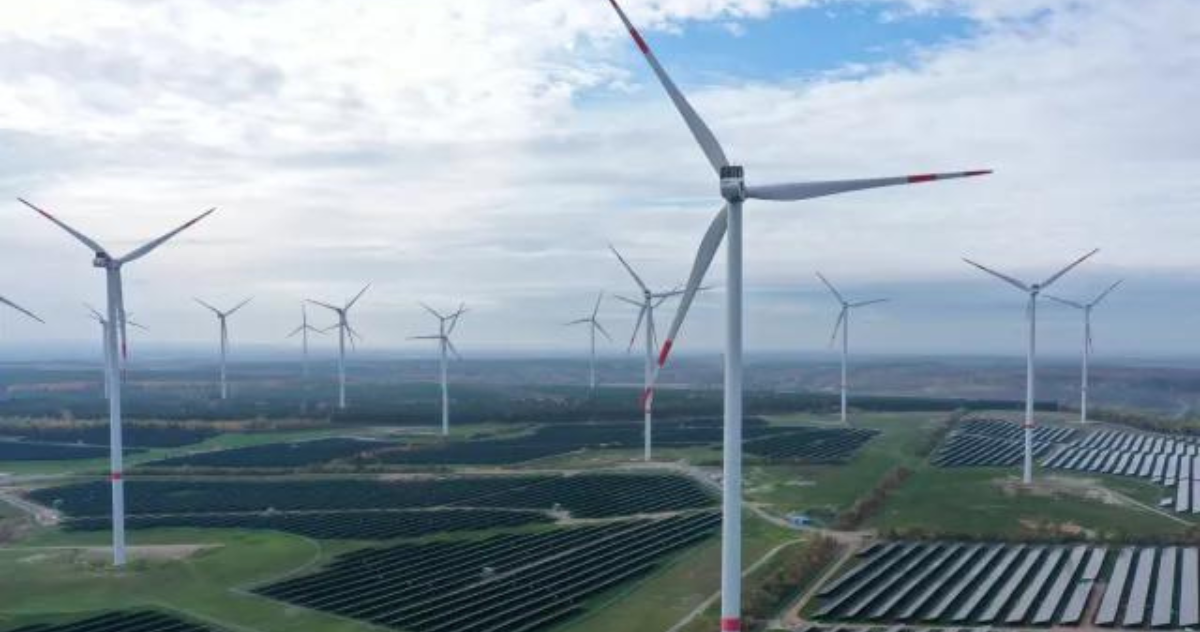UK (Parliament Politic Magazine) – An industry executive has warned that without a clear and coherent government policy on the energy transition and better industry collaboration, the UK’s energy sector is at a tipping point and faces an unprecedented outflow of skills and investment.
David Clark Says,
Chief executive officer David Clark of the worldwide engineering and technical consultant Vysus Group reports that activity levels have shifted away from the UK North Sea. Vysus Group employs about 350 individuals and has a permanent presence in 15 countries. As renewable energy and transition energy projects advance ahead of the UK, Mr. Clark stated that more favorable chances are being recognized overseas, especially in the Middle East, Europe, Scandinavia, and the Americas.
Activity levels at the global engineering and technical consulting firm Vysus Group have shifted away from the UK North Sea, according to CEO David Clark. About 350 people work for Vysus Group, which maintains a constant presence in 15 nations.
According to Mr. Clark, more advantageous opportunities are being recognized elsewhere, particularly in the Middle East, Europe, Scandinavia, and the Americas, as renewable energy and transition energy projects develop ahead of the UK itself.
Since its launch three years ago after its carve-out from Lloyd’s Register, the
Aberdeenshire-headquartered company, which employs 91 people in the UK and offers technology solutions and technical and regulatory consulting across the energy, complex process, grid, and infrastructure sectors, has been through its transition.
Through a comprehensive reorganization of the firm, the sale of non-core operations, and a heightened emphasis on the energy transition, Vysus has been able to lessen its dependency on oil and gas by increasing its market share in the renewables, low carbon, grid, and complex process industries.
Clark’s statement,
Although the UK, and Aberdeen in particular, is regarded as a center for engineering expertise, Mr. Clark, who also serves as a non-executive director of the Energy Industries Council (EIC), argues that the UK’s competitiveness in the global energy arena is being jeopardized by government policies that prioritize short-term thinking over a longer-term, integrated energy/industrial strategy. Because of the status of the domestic energy market, the speed at which new energy projects are being developed, and the unpredictability of the market for conventional oil and gas companies, the firm is less engaged in the UK, he explained.
“About four or five years ago, the United Kingdom, and specifically Aberdeen and the northeast region of Scotland, had the chance to once more take the lead globally in supplying the technological know-how and creativity required to produce the next wave of integrated, low-carbon energy solutions. “Unfortunately, the window to achieve this is rapidly closing, with people, companies, expertise, and investment going to other regions due to stakeholder misalignment and a lack of a fully integrated, long-term strategy.”
Long-Term Planning,
According to Mr. Clark, more work has to be done to realize the potential of the UK and Scotland’s northeast. “We need to bring together key stakeholders from across the integrated energy sector to unlock this opportunity before it is really too late,” he stated. These stakeholders include those from the private sector, including operators, developers, and supply chain members, as well as those from the government, both at the national and local levels, and regulatory bodies.
If we succeed in doing this, we will be able to develop a long-term plan and foster the conditions necessary to draw in the funding needed to realize the promise. We must act now to ensure long-term stability since this is an opportunity that won’t last forever. It all boils down to coordinated thinking among all parties involved.
Read More: Ending Journey Of Brexit Architect Farage From UK Politics
Delays in Energy Infrastructure
According to Mr. Clark, there have been delays in building the necessary infrastructure to facilitate a seamless transition because of this lack of coordination. “In the UK, one of the biggest challenges is developing the electricity grid. Between developers, operators, stakeholders, and planners, there is a glaring disconnect, the speaker claimed. The world of energy is becoming ever more interconnected.
As an illustration, consider the electrification of oil and gas, the integration of hydrogen, and the use of renewable energy sources to power platforms. According to Mr. Clark maintains a “fantastic level of innovation and engineering and delivery expertise with some great collaboration with universities and technology development centers” in addition to continued world-class research and development activity. “The UK’s ability to convert technical innovation and development into real products and projects remains a challenge, even though the recent Autumn Statement contained encouraging signs,” the speaker stated.

